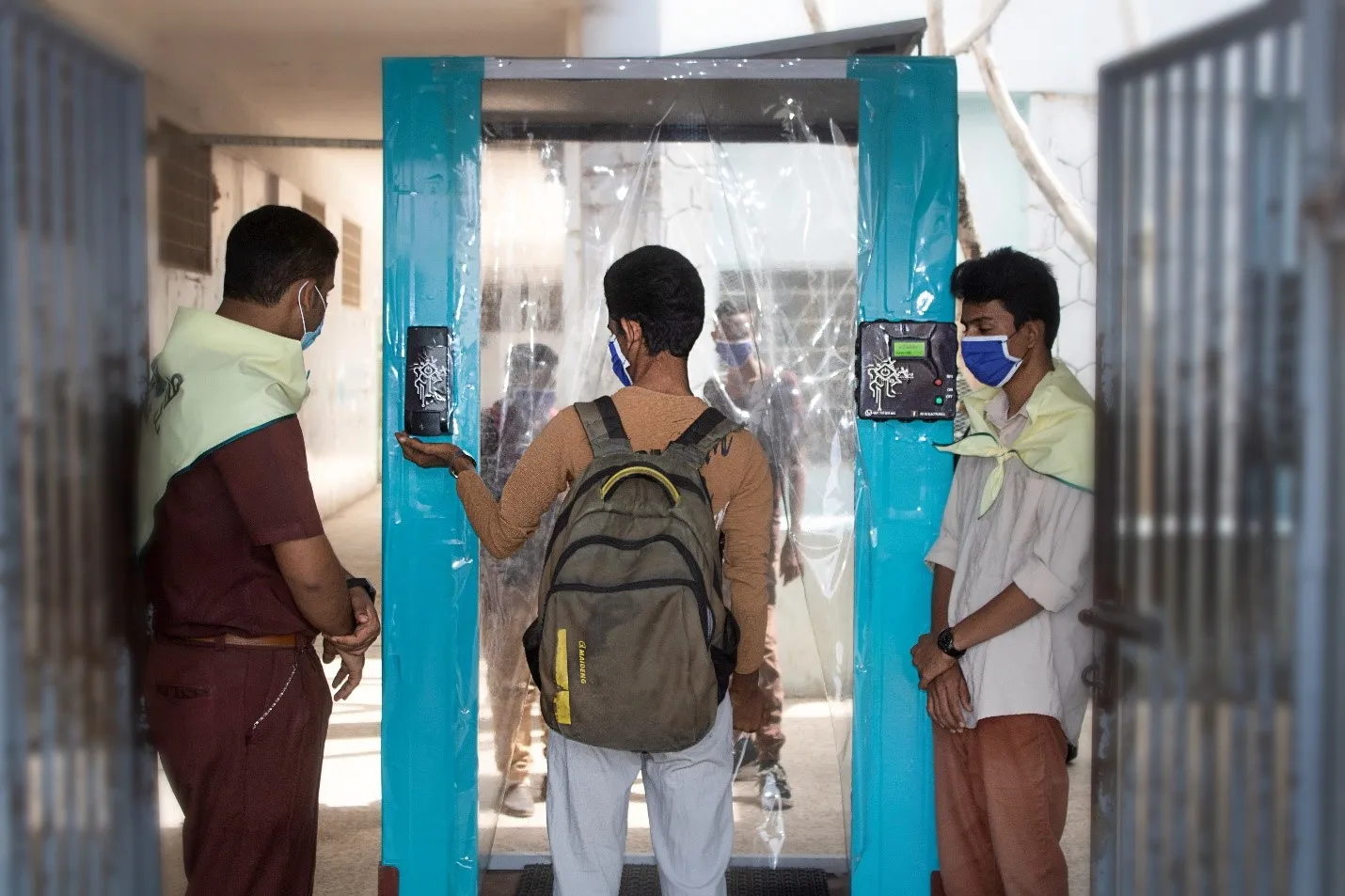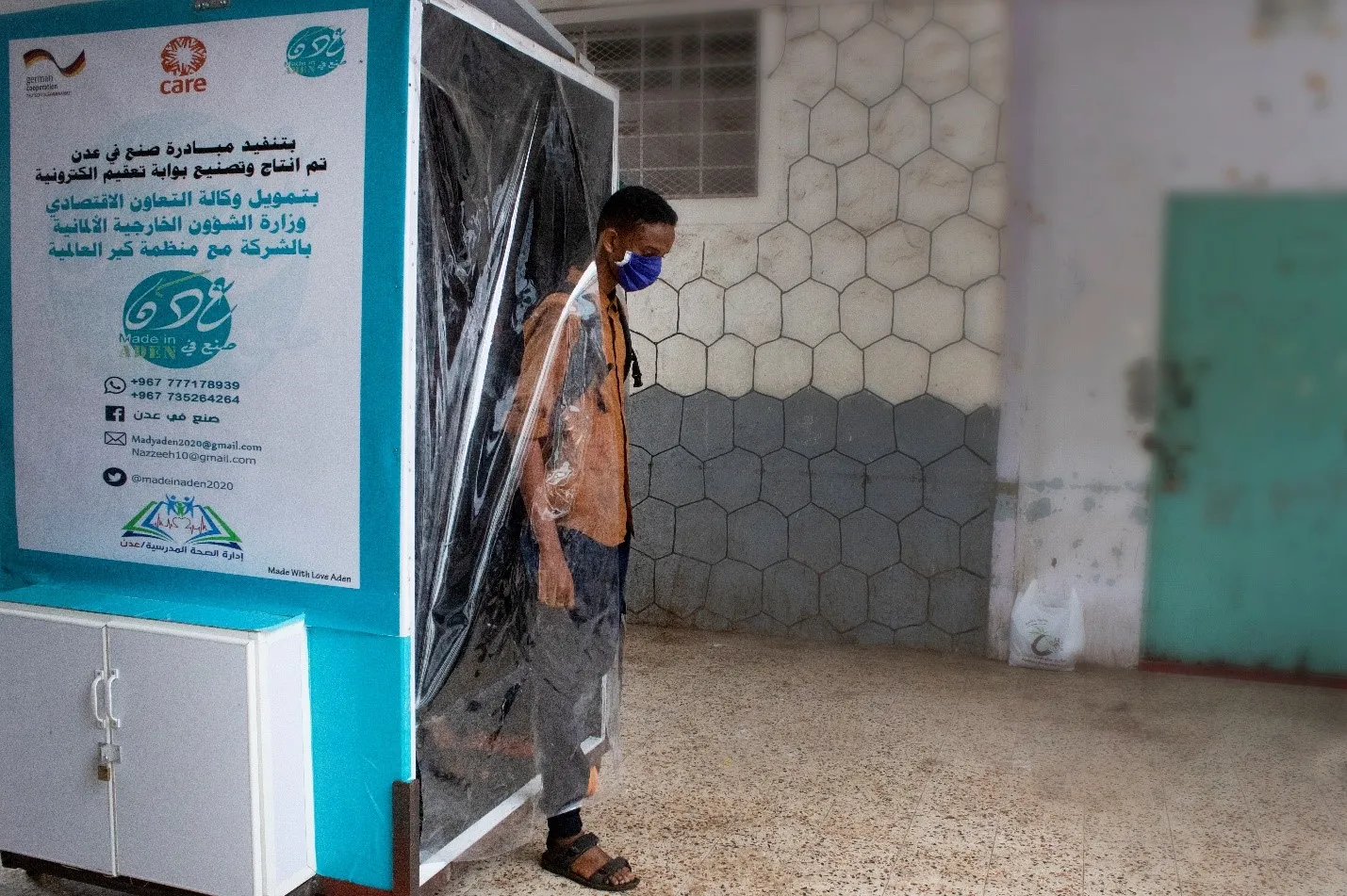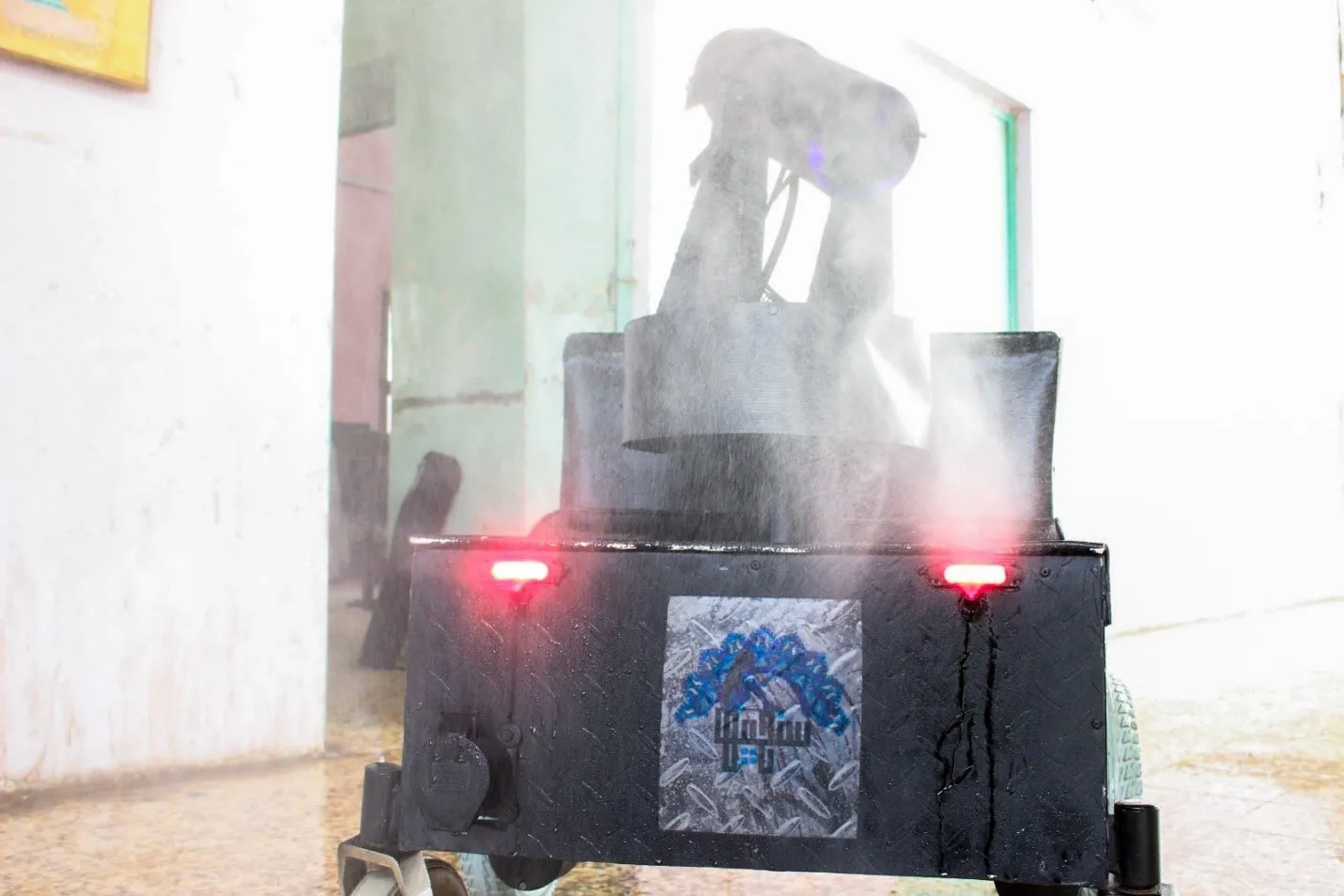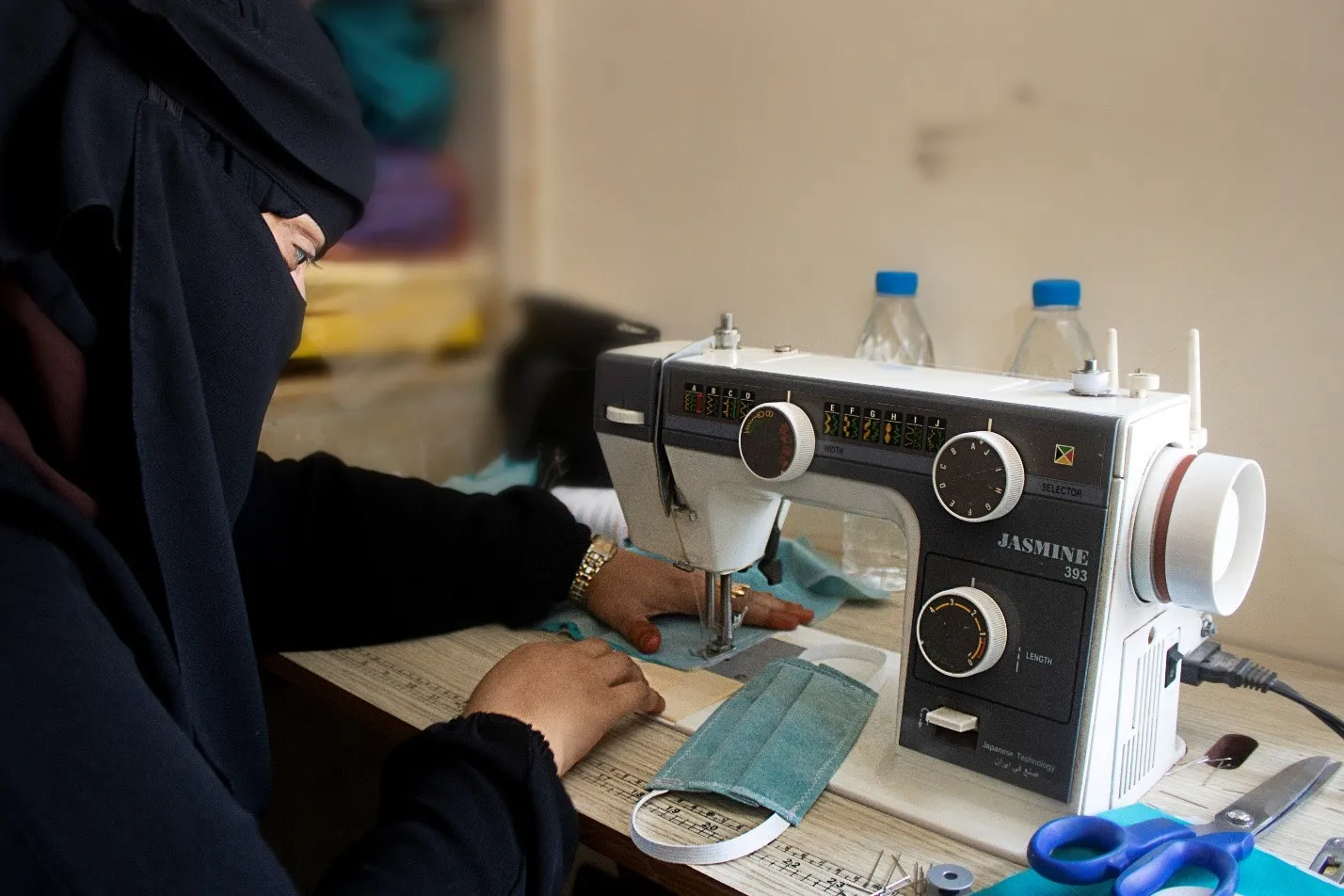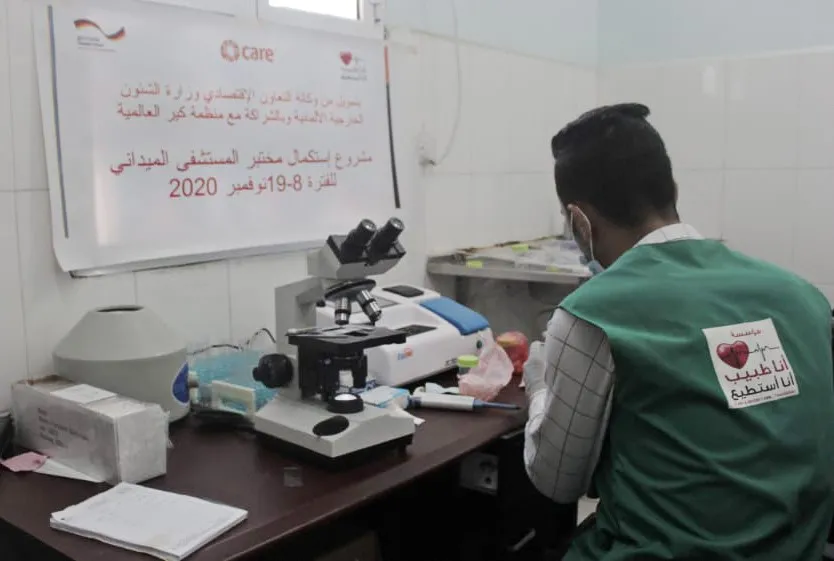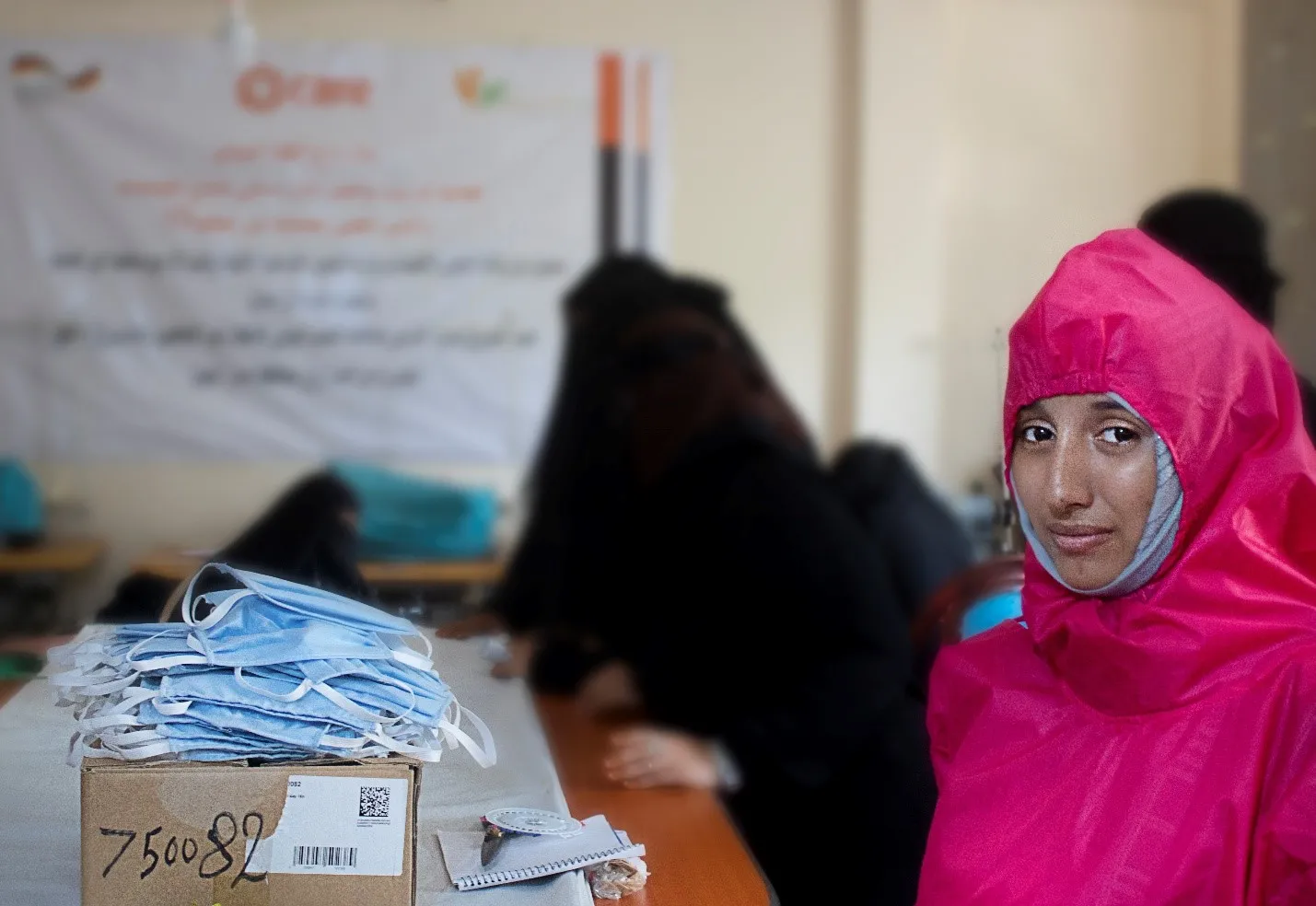Sami is the Executive Director of the Made in Aden initiative. With the outbreak of COVID 19 and the increase of cases, Sami and his friends decided to act. “We want to support our community,” he says. “When the corona pandemic worsened, we decided to educate families about the symptoms and what it takes to avoid catching the virus.”
“Some of the volunteers designed a walkthrough sanitation gate to disinfect passersby and prevent cross-infection. Unfortunately, we couldn’t install the gate because we couldn’t afford it.”
Volunteers in Aden were lucky to find funding from Germany’s Federal Ministry for Economic Cooperation and Development (BMZ), and CARE, which supported 16 initiatives to help communities confront COVID-19. Through the project, members of targeted initiatives were trained on strategic planning, budgeting, communications and reporting. After the training, the initiatives received the funding needed to start covid prevention activities in their communities.
“I felt excited when I heard about CARE’s project. Thankfully we were selected to participate,” says Sami. “After the training, we received a financial grant of $3,093 to install one sanitizing gate at a Marib school in Al Mualla district and another gate at Khadiga school in Al Mansoora district. The two gates are a one-step solution meant to clean hands and clothes without wetting or staining them.”
“Due to the constant power cuts, the gates operate with public electricity and solar power,” says engineer Saleh, one of the sanitization gate creators. “It automatically turns off when electricity is cut. Thanks to CARE, we were supported to apply up-to-date techniques to help students study safely.”
The principal of Marib school says: “Teachers, students and myself feel safe as we sanitize every time we enter the school. Our young people are creative. Who would think that this gate is locally made?”
“The health system lacks the needed capabilities to cope with the strain caused by the COVID-19 outbreak,” says Sara, a member of one of the supported initiatives. “With the fragile healthcare system, there is an urgent need for more resources to enable the health facilities to save lives.”
“Thanks to the financial grant we received through the project, we supported some laboratories in hospitals with much-needed blood checkup equipment and supplies. We were surprised with the big number of cases that consumed this equipment. In only two months, around 3093 blood tests were conducted free of charge.”
“I am so proud to see young women sewing masks and protective suits. Some initiatives targeted the most forgotten groups like the blind, the deaf and prisoners to educate them about prevention methods. I feel proud to be part of the solution,” she concludes.

